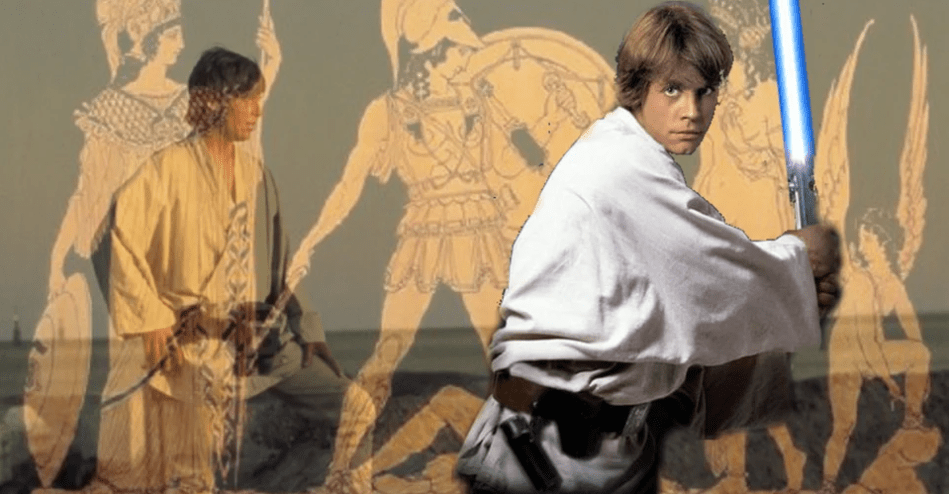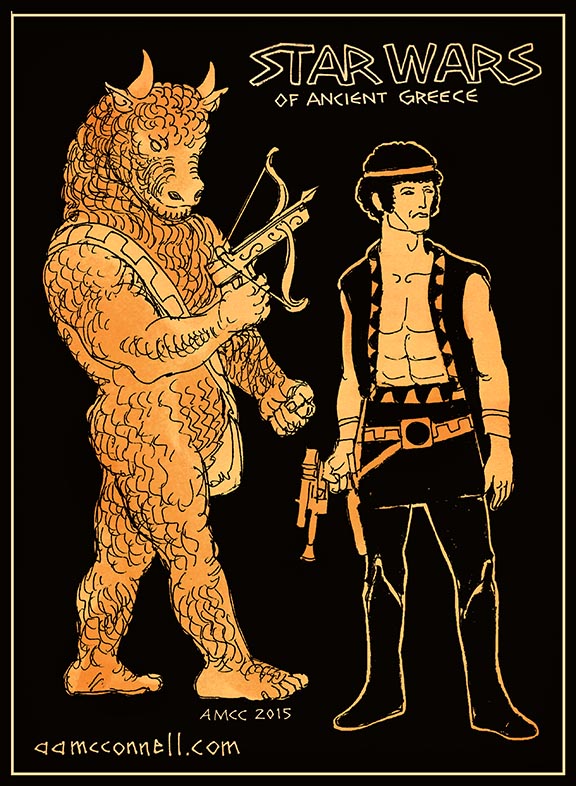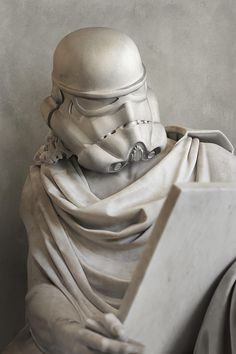May 4 : Star Wars Day & Greek mythology

Today is Star Wars Day, and we will take a look at the influence of Greek mythology on this legendary series (before Disney destroyed it). Below is a History Channel video that explores these links and then an article with more info.
The article below was published on Eagle’s Eye of Sierra Nevada University. You can also check out this link on the official Star Wars page that talks about the Mentor theme in Star Wars and its Greek mythology link.
Dr. Carl Rubino explains the mythology behind Star Wars
On Feb. 8, a crowd of students and community members gathered to witness Dr. Carl Rubino’s lecture on the connection between the popular Star Wars films and Greek mythology. Dr. Rubino is a professor of Greek, Roman, and Classic Literature at Hamilton College in New York. He has appeared on the History Channel in a Lucasfilms documentary, “Star Wars: The Legacy Revealed,” where he discussed the films’ roots in classical mythology.
“The thing about myth, is that it’s embedded in our culture. It’s universal and unspoken,” Rubino said. “I’ve always been interested in the link between Star Wars and ancient Greek mythology, and I’m interested in why these films are so popular.”

Almost 40 years ago, on May 5, 1977, the first Star Wars movie was released. It was an instant sensation, sky-rocketing it’s relatively unknown actors to fame and subsequently manifested a multibillion dollar franchise. Through the decades, another six films have been added to the Star Wars saga. The most recent, “Star Wars: The Force Awakens,” released Dec. 18, 2015, being one of the most popular in the series thus far.
“I’ve seen all the films and the new one is my favorite,” Senior Kaitlyn MacAuley, an attendee of the lecture, said.
What is it about the Star Wars films that has captivated such a broad audience? Rubino believes the answer lies in the science fiction films’ similarity to Greek and Roman legend.
“The ancient themes are there, even if we don’t know it, and these are archetypal themes that speak to all generations of people,” Rubino said. “The Star Wars films show the eternal struggle of goodness and light against evil and darkness. These themes would be familiar to readers of “The Iliad” and “The Odyssey” in 750 BC.”
According to Rubino, another theme prevalent in both Star Wars and Greek mythology is the idea of fate or destiny. In Greek tradition, a hero cannot escape his fate. It is predetermined and unavoidable. Rubino asserts that the character Luke Skywalker is also a victim of fate, comparing the character’s relationship with his father Darth Vader to the Oedipus myth. Oedipus is a tragic hero from Greek mythology who is destined to unwittingly kill his father and marry his own mother.
“Luke keeps being told that he must kill Darth Vader. It is his destiny. However, Luke is more fortunate than his Greek counterpart because he finds out who his father is before it’s too late,” Rubino said.
Rubino went on to liken other popular Star Wars characters to ancient Greek heroes. The clever and charismatic Hans Solo is a “hero who lives by his wits, much like Odysseus in the ‘Odyssey,’” he said.
Yoda, the Jedi Master who tutors Luke Skywalker on a distant planet, is also comparable to a figure from Greek literature.
“Followers of Greek myth will remember Chiron the Centaur, who lived in a cave on Mount Pelion and taught the young Achilles the skills of hunting, breaking horses, medicine and music,” Rubino said.
From Greek and Roman legend to pop culture, Rubino’s lecture addressed timeless themes that audience members could relate to, whether they were Star Wars fans or not.
“I learned about the popularity and continuing relevance of the Star Wars saga,” Humanities Chair Dan O’Bryan said. “There is something there, a common or universal experience that speaks to individuals today just like it did at the time of Achilles and ‘The Iliad.’”

0 Comments